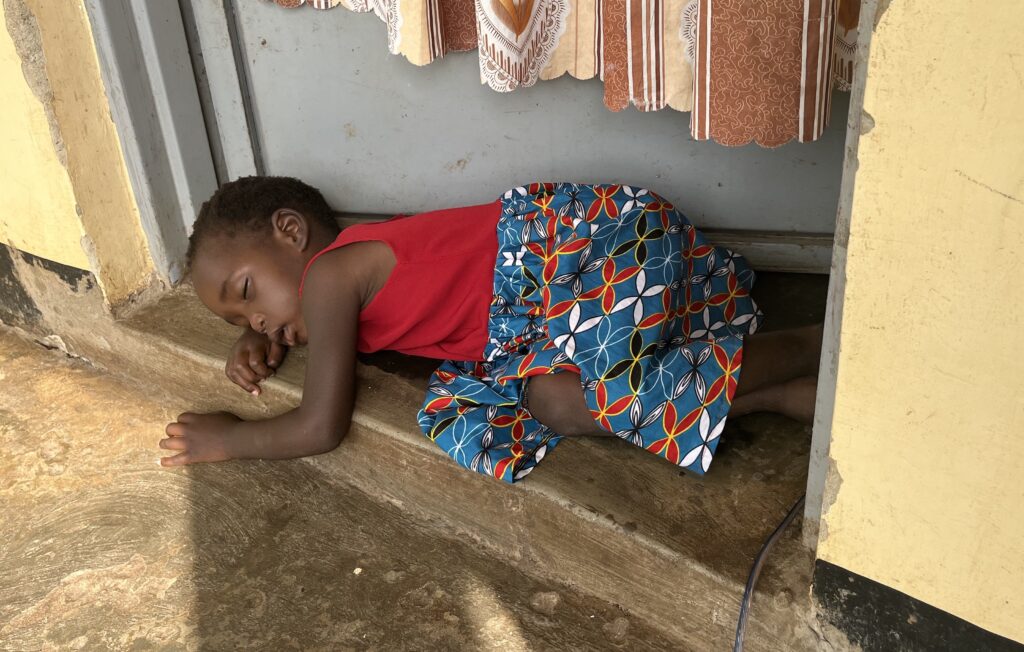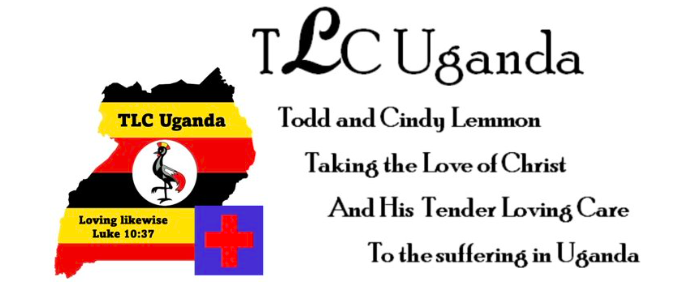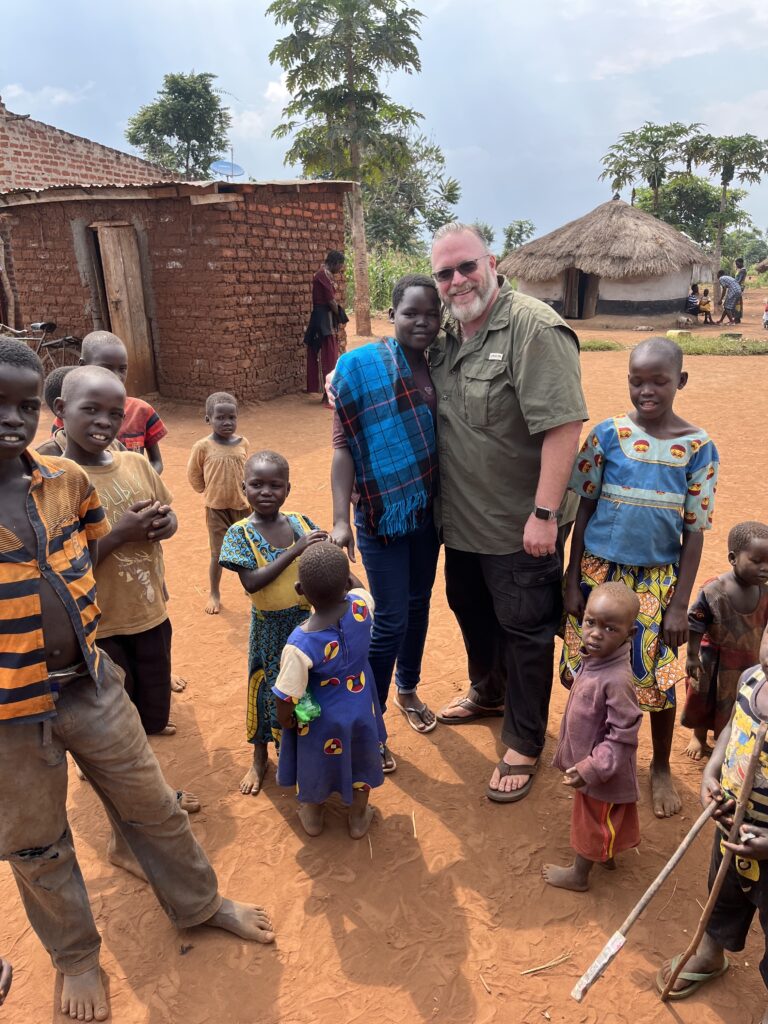Here are a few incidental highlights of my recent trip to study the people, culture, and language of the northern Ugandan territory known as Acholiland. These seemed like interruptions at the time, but turned out to be those little opportunities God orchestrates into our lives just like He promised in Ephesians 2:10.
For we are God’s handiwork, created in Christ Jesus to do good works, which God prepared in advance for us to do.
Ephesians 2:10, NIV
As you read these accounts, please consider how God has woven into your life opportunities you are specially designed and appointed to meet.
Take up your mat and walk
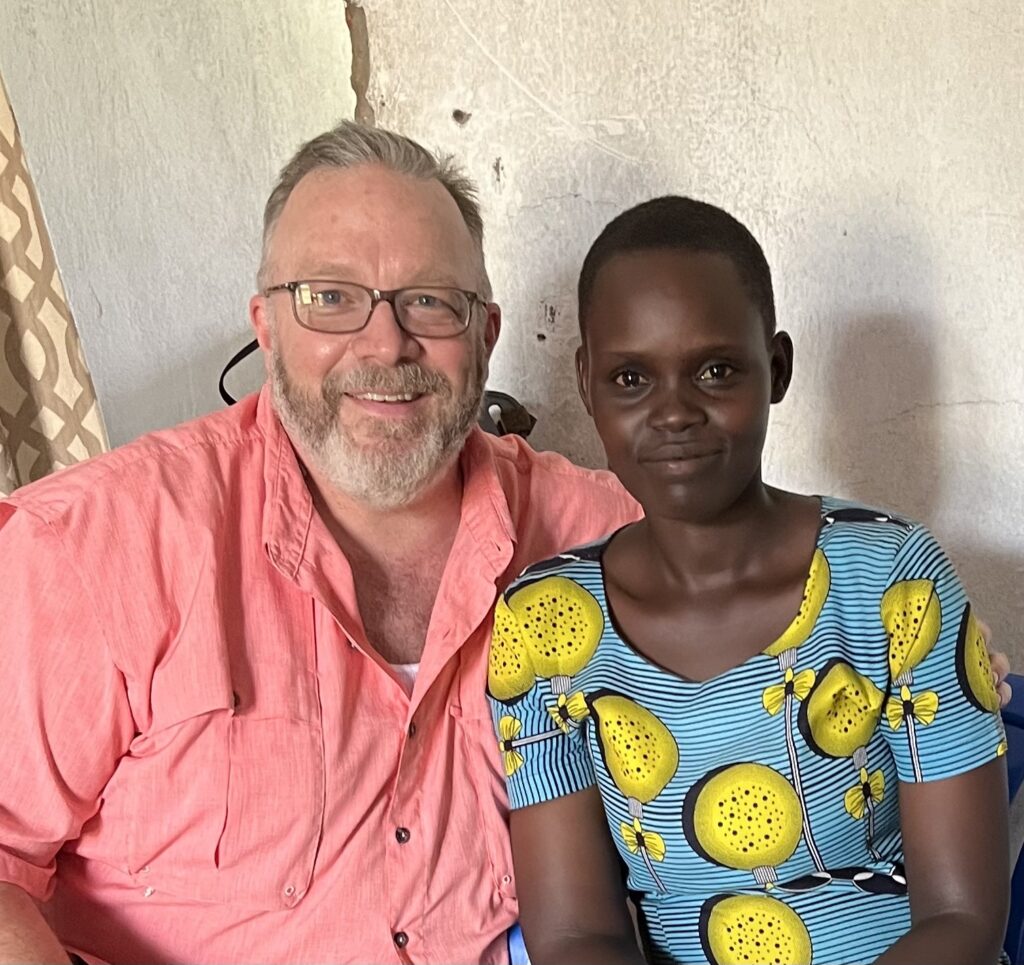
One of my first priorities before I started my training was to visit Sharon, the young lady we are sponsoring to receive two hip replacements with a GoFundMe campaign. She was staying in Lira, a nice town separated from the rest of the world by a long, horribly treacherous, dusty road. Lira Road is known throughout the country as one of the worst roads in the history of roads, but when, at the end of it sits a precious woman like Sharon, you do what you must to get there. Sharon spends her days in prayer, sometimes by herself and other times at the request of neighbors who know of her status as a Christian prayer warrior. She can fling herself onto the back of a motorcycle and throw her crutches over her lap with more agility than I can mount one myself. Her smile lights up a room, and she made me promise to tell all of you who contribute to her campaign or pray for her that she is grateful and is praying for you too.
My Acholi teacher
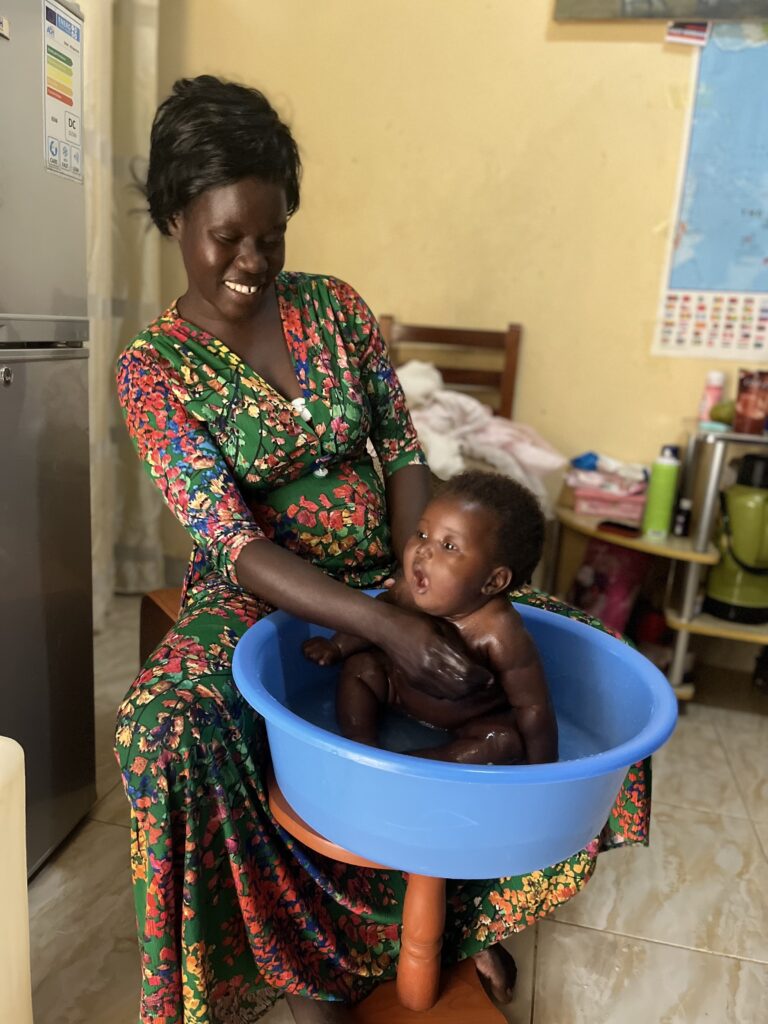
The reason for this trip was to study the Acholi language and culture. My teacher, Beatrice, was sort of a mission in herself. She lost her job as an English teacher when she had a baby without maternity leave. Since I needed an Acholi teacher and she is a native Acholi with language-teaching experience, I offered her the three-month job at her old salary plus food expenses so we could have lunch at her home, maximizing our study time. With part of her salary, she hired another Ugandan woman to keep house and tend the baby while Beatrice devoted most of her attention to my education. That made two Ugandan women who got at least temporary jobs because of my stay, and what a blessing they were to me! Our tutoring schedule was 9:00 am to 5:00 pm, Monday through Friday, with a few interruptions and even more weekends together. The three of us, plus baby and Beatrice’s husband, Simon, became quite the little family before it was over.
Janet’s family
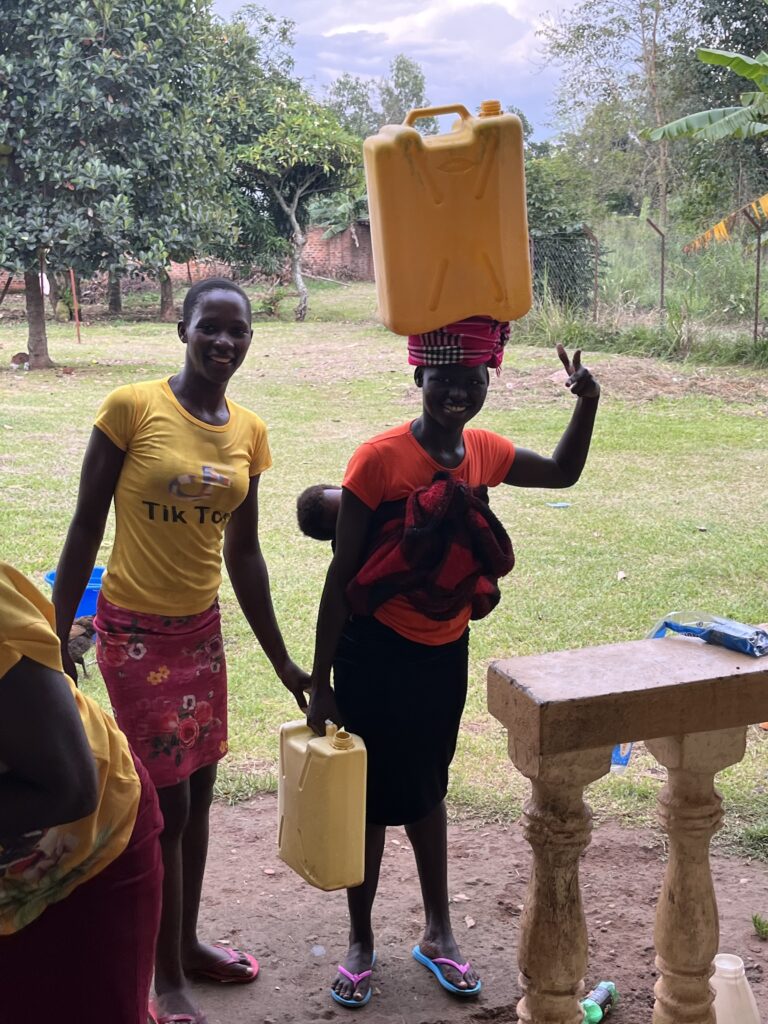
If you’re new to this blog you might not know about Janet. I met her at a mission hospital where she was my volunteer nursing assistant. She melted my heart one day when she asked me why I loved her so much. Since I had never told her I loved her, I was surprised to find out I was doing it well enough that she recognized it. I told her that her Creator thinks she is worth dying for, and so she is worth whatever love I can give her, and I also affirmed that she made it easy to love her with her kindness and helpful spirit. Since then, she has been a daughter to me. When her dreams to become a nurse were threatened, I told her I would take responsibility for paying her way and would take care of her as if she really was my daughter. God apparently agreed because, in order to resettle her from the orphan mission she grew up in, we had to first approach her previous guardian, her older brother, who presented the issue to the tribal elders who, in turn, agreed that I would be a better guardian for Janet. We went to the government office that deals with these things — Janet, her brother, the representative from the orphanage, and me. By the end of the meeting, I was Janet’s new guardian even though she is an adult of 22. She is now my daughter, and I couldn’t be happier!
Dorcas
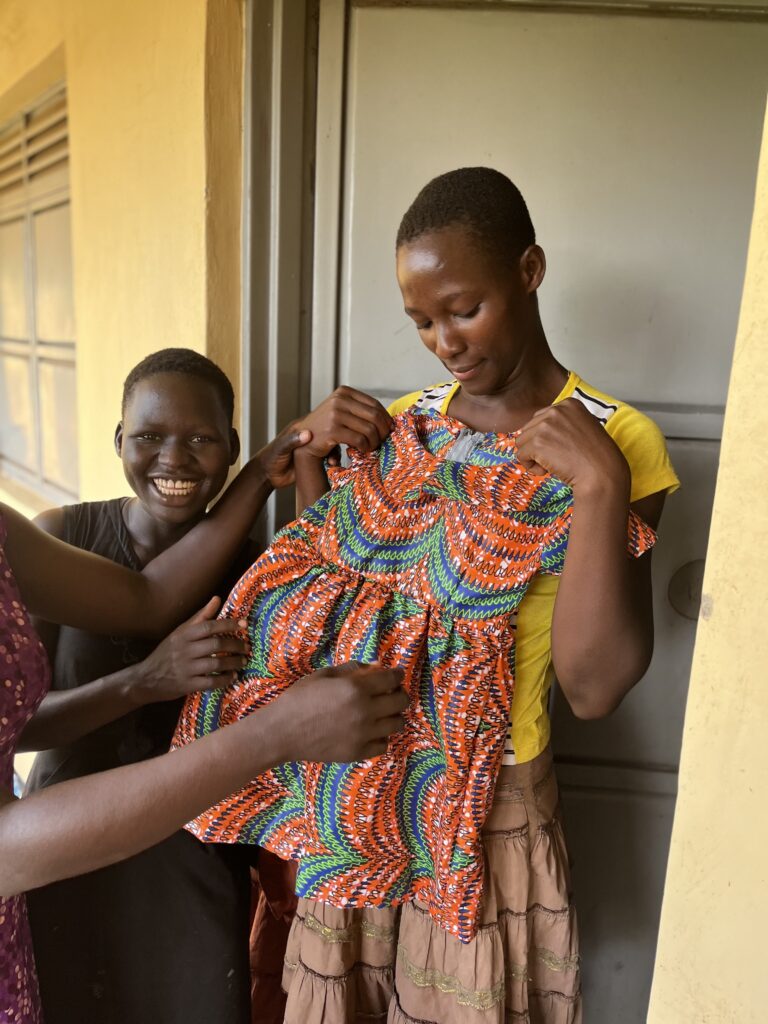
Janet didn’t just hoard the new Christian love she had experienced, but shared it with her cousin, Dorcas, who was soon baptized in a swampy stream near their home village. Dorcas is married with three kids, but her husband abandoned her and took a second wife. Polygamy, an accepted part of Ugandan culture, generally comes with a lot of drama between rival wives. Since their separation, her husband has deprived Dorcas of her children, so she is desperate to learn how to make her way in the world. We paired her up with another mission, Wend Africa, which empowers at-risk women by teaching them the trade of tailoring. With our sponsorship, Dorcas is set to graduate from her training this month. Before I left, she made matching outfits for “Mama Cindy and Papa.”
Toddler's malaria cured
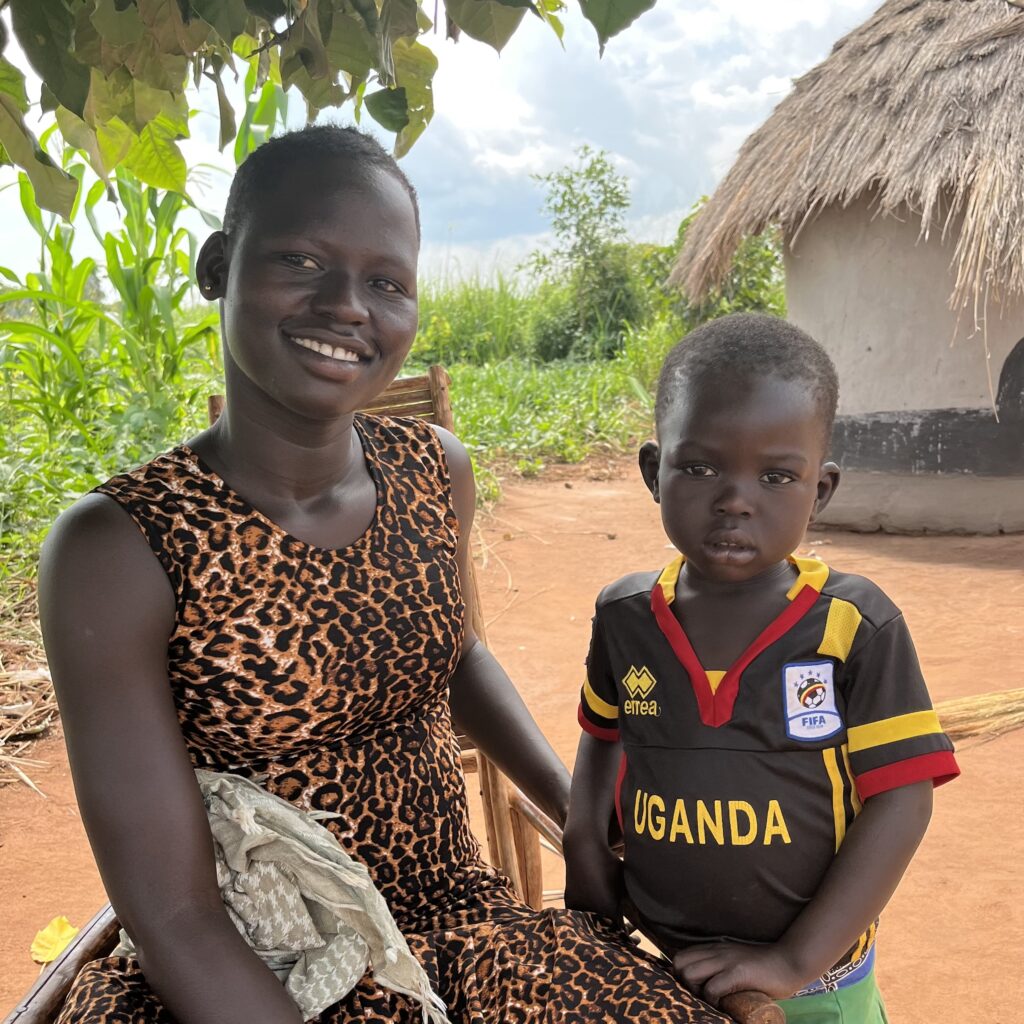
Janet also introduced me to her sister who, when we found her, was returning from a Kamdini to her village with her three-year-old daughter. We drove them to the path that leads to their village, parked the car at the edge of the highway, and walked them home. While we walked I became acquainted with their story. This woman was also raising children without a father, but had just come from a health center where her daughter was diagnosed with a serious case of malaria. The severity of her case requires intravenous treatment but, since she could not afford it, she was had brought the child home to simply hope for the best. I offered to pay for the child’s healthcare treatment and proper transport back to the hospital, and a few weeks later, we returned to find that little girl up, strong, and healthy. After I returned to the States, I was informed she had a relapse, and the sweet baby girl asked her mother, “Will Uncle come and hug me since I am sick? He always hugs me when I am sick!” You better believe we sent more treatment money, and she is doing fine once again.
Abused worker healed and rescued
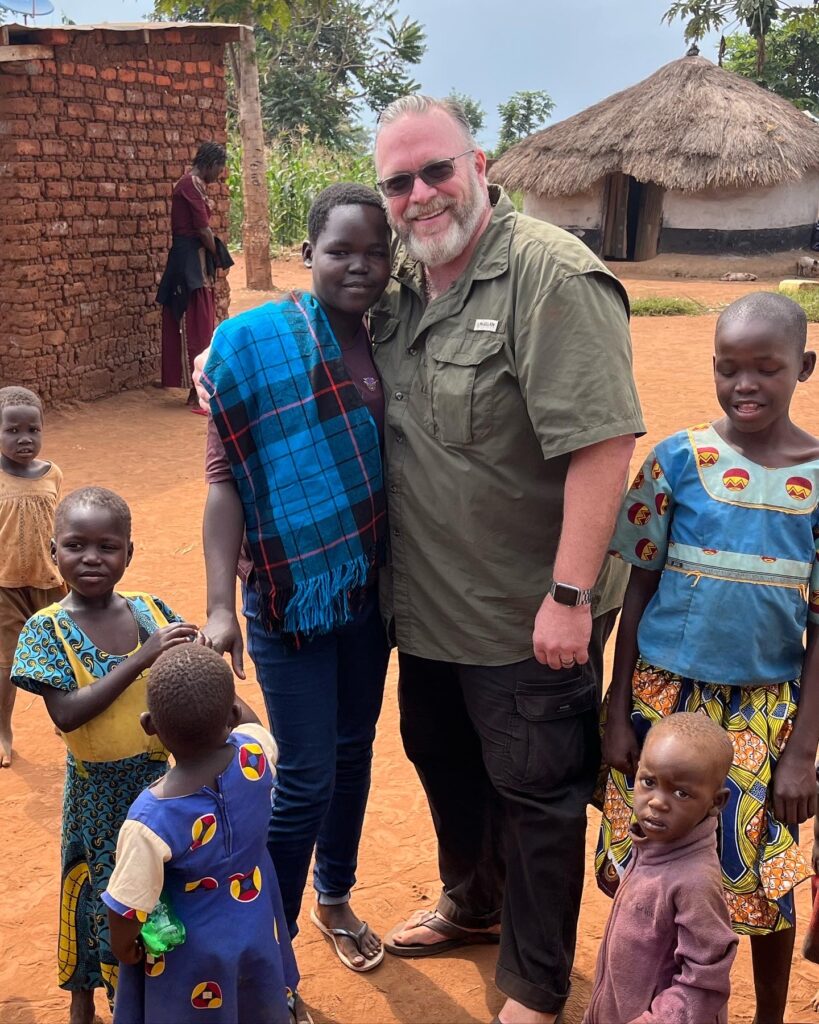
About half-way into my stay in Acholiland, Janet told me she had another cousin who lives in Gulu, the same town in which I live and study. This cousin was working in a gambling house for an employer who refused to grant her leave to seek treatment though she was seriously ill. Janet said her cousin told her she felt as if she might die, so we responded in the middle of the night and took her to the hospital. It turned out she had a rare form of blood poisoning, and would likely have died without treatment. After several days in the hospital, she regained her strength and was ready to be discharged, but refused to return to working for her old boss. Since she had been living in the back room of the gambling house, we had to return there to fetch her bed and belongings. It was one of those times where my police past joined up with my nursing present, because I stood between this girl and her abusive employer as we told him we were leaving. The girls gathered up her belongings, we loaded up my van, and drove off to safety. After a few days at Beatrice’s home, we finally made the trip to Poli, the girls’ home village where she safely remains to this day.
Rescued from a child rescue
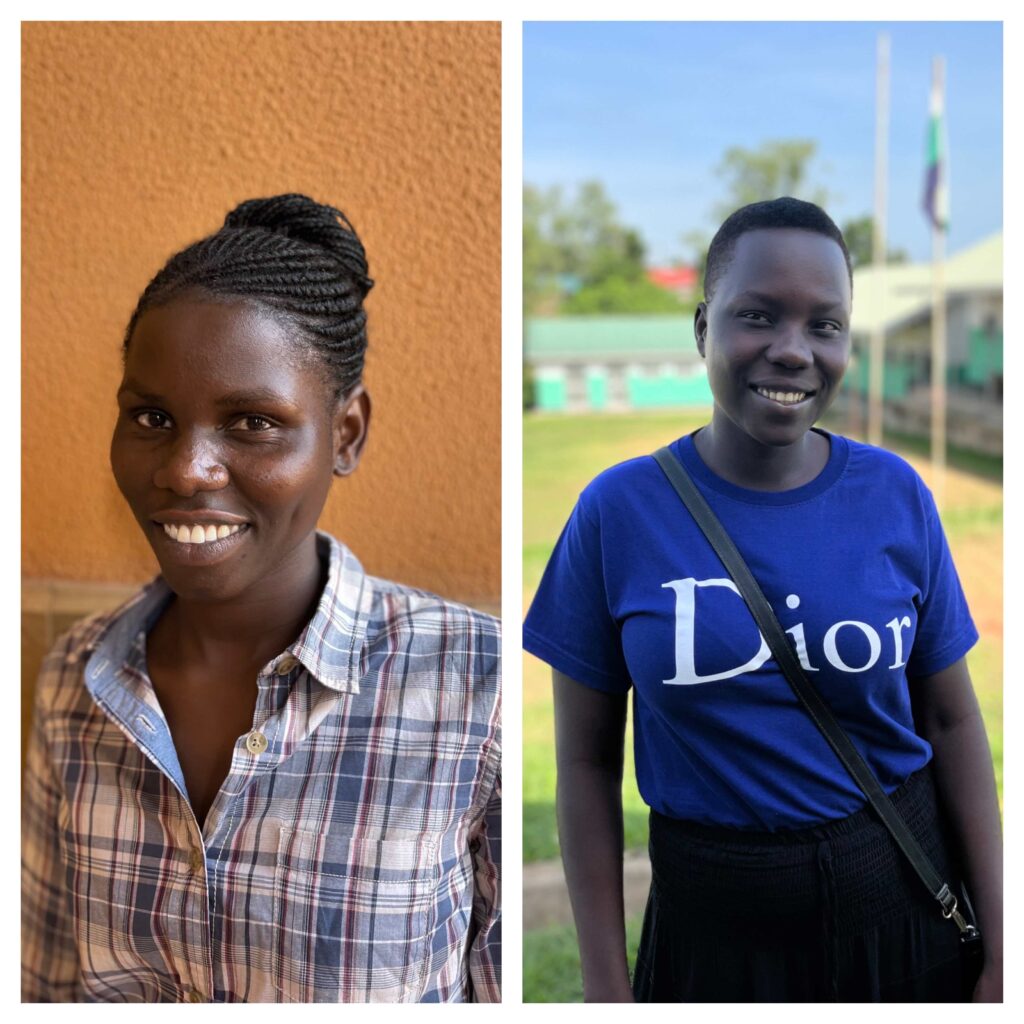
I learned of some abuses of two young adult women, who were resident students of an orphan mission until this year. One was set to begin Secondary Four (like Twelfth Grade), and one in Secondary Five (sort of like a college-prep extension of secondary school, like if there was a Thirteenth Grade). The latter has a sponsor who means well but has trouble fully supporting the young woman. The other had absolutely no financial support whatsoever, but was attempting to make the best of it, working and sleeping in a retail shop in a horribly dangerous town on the Ugandan border with South Sudan. When I told her I was in Gulu, she hopped on a bus and came to visit. To make a long story short, we took responsibility for both these girls and got each into an appropriate boarding school (almost all schools in Uganda are boarding schools). The younger of the two was placed in one about a ten-minute drive from our house. That proved to be fortunate, because she needed to be taken to the hospital clinic a few times, shopping several others, and for a simple respite from school once or twice. Both these girls know they are loved and cared for, and each of them loves “Mama Cindy” too. The older of the two contracted typhoid fever and malaria at the same time, and missed a lot of school for her hospital treatment, which we happily provided, but she is confident she will catch up in time to pass her final exams in November. She wants to be a doctor, and I hope we can help her reach for that dream.
Healthcare training promotion
The reason for my trip was to study the local language, but the timing of the trip was so that I could be there to see Janet begin her nursing school term and help iron out any obstacles that might arise. We eagerly reported to the Gulu School of Nursing, about three minutes walk from my house. There, we received the disappointing news that, because of a newly enacted law limiting all Ugandan nursing schools to one cohort per year, Janet would have to wait until January to begin her training. Not content with that prospect and having already been accepted into another school which begins their cohort in July, she opted to enroll to the nursing program an hour and a half away from my house. We got her settled without any major problems, and she took to it like a fish takes to water.
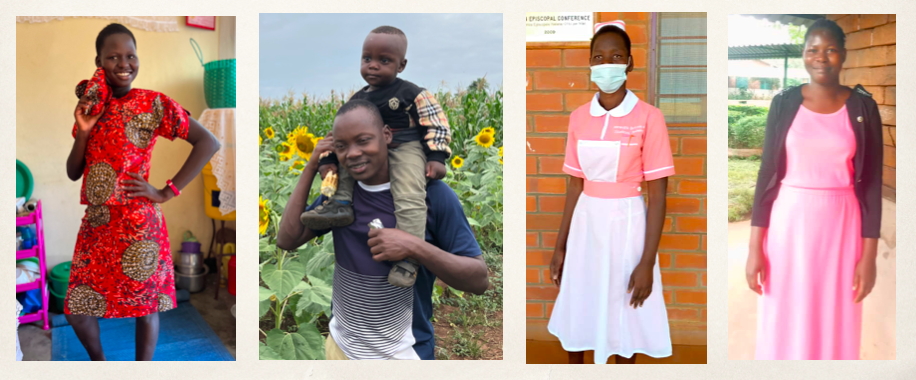
Janet is not the only healthcare student we are sponsoring. If you’ve been reading along, you know that Patrick, one of my favorite nurses, has become a part of our lives, calling us “Mama and Papa,” house-sitting for us when we are away, and generally being an awesome son. He is now enrolled in the Gulu School of Health Sciences, about a five-minute walk from our house, to become a clinical officer (sort of like a physician’s assistant in the U.S.). We have also issued student loans to a midwife advancing from certificate to diploma level and a clinical officer studying sonography so she can do ultrasound assessments. Not one of these students has been compelled to work for us in the future, or pay back their loans until they are gainfully employed, but each one has expressed an interest in joining our team. I would say that we are starting to lay the groundwork for a great healthcare family.
Elephant repellent
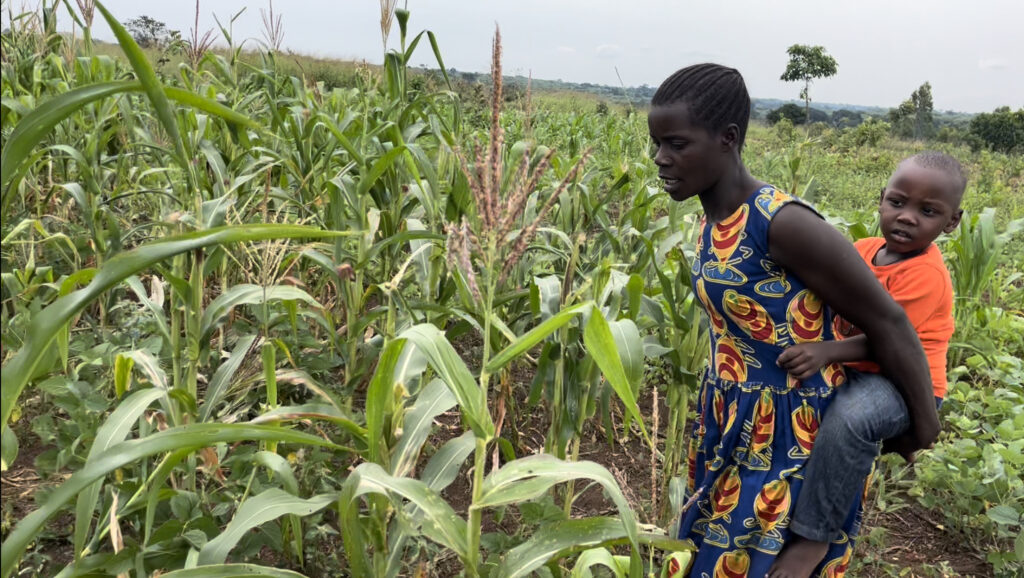
In a remote village to our south, we visited with Patrick’s sister, another single mother trying to make her way in the world. Polly lives and raises corn and sunflowers on the edge of a wildlife preserve. That sounds and appears awesome, until Polly showed us her crops trampled by elephants. We sat and discussed what her real needs are. She has too much invested in the farm to leave, no help and no money to hire any, and not enough of a payday at harvest to even pay her rent, let alone make improvements. Still, she insisted on remaining there to work that land as best she could. One thing she lacked was a “torch” (flashlight). She said that, in town, she had found one big and bright enough to frighten away elephants, but it cost money which she did not have. That sounded like a hand-up we could provide. For the same money we would easily blow on a Sunday lunch, we were able to help this woman get the torch (more like a handheld spotlight) she needed to keep her crops safe. Now she spends her days farming and her nights standing guard against elephants, which she repels with the power of light.
Saved from the quarry
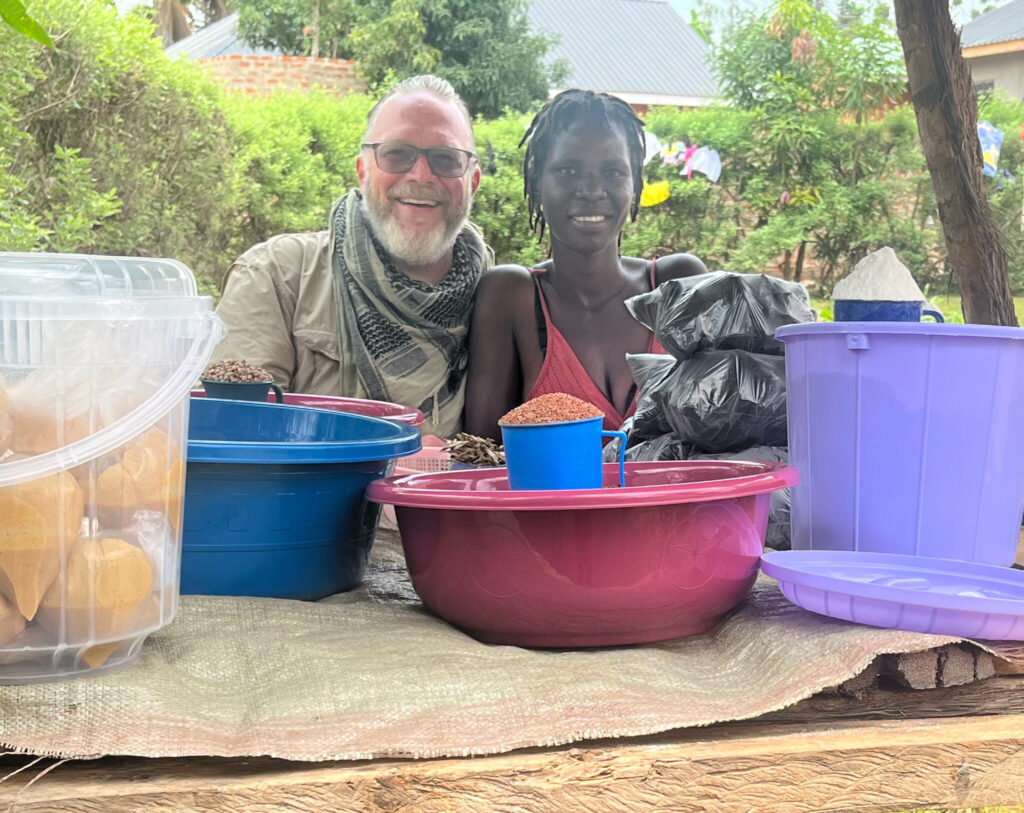
Beatrice’s neighbor is a nice, quiet lady, sweet and loving when she was there, but I noticed she was gone a lot and had no husband to speak of. Her daughters, aged four and two years, were left to take care of themselves most of the day, the elder of the two gone to school for most of that. The two-year-old, who doesn’t speak a word of English, often slept outside their door or in Beatrice’s house. She was like my shadow, and we took her with us whenever we went into town, to keep her from being left totally alone. I soon discovered that Mama spends every day, from sun-up to sun-down in a nearby rock quarry, breaking rocks to make a small salary with which she feeds and clothes her girls. It turns out her husband left her and the girls about a year prior. It was Mama’s dream to open a market-stand outside her home, so she could remain with her daughters and escape the brutal days at the rock quarry. We helped her with a small loan as start-up capital, offering her a hand-up and not a hand-out. She was thrilled, and we went shopping for charcoal, corn, beans, ground nuts, and various other commodities. We got her moved to a place where a home market would be of value and the next thing I knew she was set up and making profits, all in sight of her front door and her two precious girls.
Do good to those who persecute you
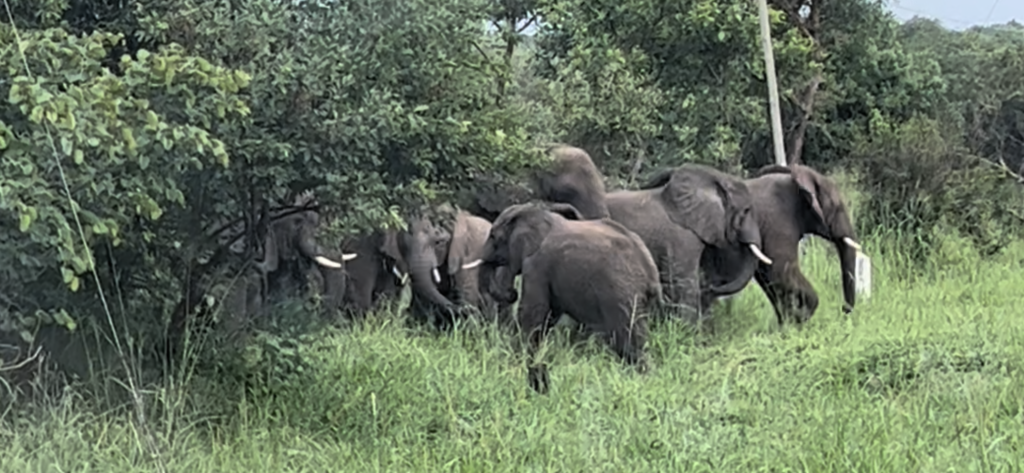
For reasons involving the students I rescued, the mission at which I served last year has made it clear that I am unwelcome. Even so, when my little troupe and I happened upon a bunch of folks from that mission walking on the other direction on the highway as we returned to Gulu, we stopped and offered them a ride. It turns out their bus had broken down and they were planning to walk the distance that takes us an hour and a half to drive, but we delivered them the distance, a three-hour round-trip for us. On the way, we were rewarded with an elephant sighting. Nine of the majestic behemoths teased us at the roadside while we waited for them to clear the way. The elephant, or “lyec” (that’s pronounced “lyetch”) is the symbol of the Acholi tribe. Even so, many Acholi live their whole lives without seeing one. I saw nine that day and have seen them on that stretch of road two other times. I am told by the Acholi that is proof I am blessed.
Weeds among the tares
One of our acquaintances who relies on his crops to feed his family reported to me that he could not afford to hire workers to weed his fields, but that he was going to lose his crop if he did not find a way, and he could never do it by himself. We worked out how many weeding parties he would need before harvest, and what each would cost. He agreed to pay back a no-interest agricultural loan with the proceeds from the harvest. This seemed to be a great mean-time substitute for the plowing project we have planned.
In their hearts humans plan their course,
Proverbs 16:9, NIV
but the Lord establishes their steps.
To see more of our future plans visit our Projects page. John Lennon once said, “Life is what happens when you’re busy making other plans.” We hope you will see that, while our mission is developing along the course we have chosen, the Lord directs our steps (Proverbs 16:9), very often in unanticipated directions. We hope you approve of the work we are doing even before we break ground on some of our grander plans, and that you come alongside us with your prayers and your support. If you already have, we thank you. If you would like to be a part of our support family, please visit our Contribute page and let us know you are there by filling out our Getting to Know You online form.
